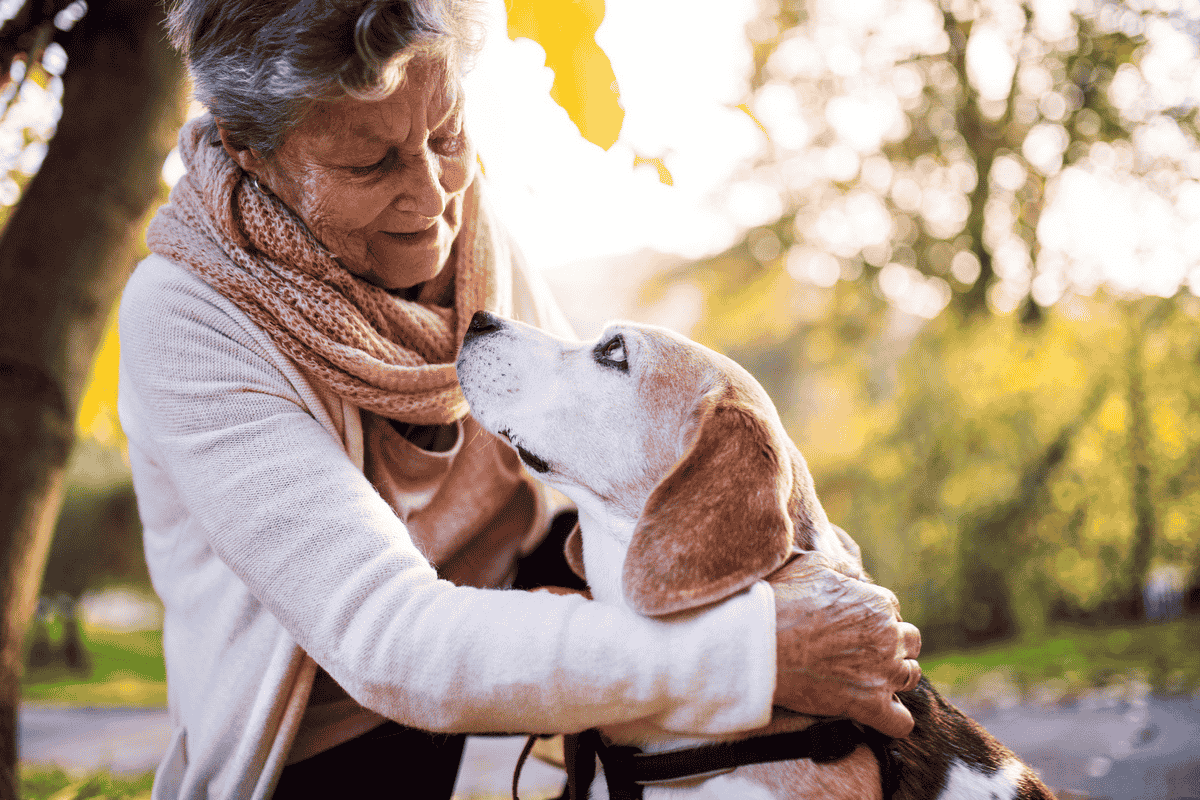In general, dogs are considered seniors at 7 years or older, though this depends on breed and size:
- Medium and large breeds: Around 7 years
- Small breeds: Around 11 years
- Giant breeds: As early as 5 years
Because lifespans vary, “senior” status isn’t one-size-fits-all, but it’s important to understand when dogs are entering their golden years.
Why You Should Adopt a Senior Dog
Senior Dogs Are Often Overlooked
While 5.8 million dogs enter U.S. shelters each year, senior dogs are less likely to be adopted—only 25% compared to 60% of puppies and younger dogs. Many potential adopters hesitate due to concerns about health issues, lifespan, or unknown histories.
Yet, senior dogs deserve loving homes and often have plenty of happy, healthy years ahead.
They Can Still Learn New Tricks
Contrary to the old saying, senior dogs can learn new skills. Many are already house-trained, making the transition easier, and training them to follow new routines or fun tricks helps keep their minds sharp.
They Offer a More Relaxed Environment
Senior dogs tend to be calmer and less demanding than puppies. For families with a more laid-back lifestyle, adopting a senior can be a perfect fit.
They Still Have So Much Love to Give
Age doesn’t diminish affection. Senior dogs are often deeply grateful for a second chance and bond closely with their new families.
They Are Full-Grown
Unlike younger dogs, senior pups have already reached their full size, so adopters know exactly what to expect in terms of height and weight.
Their Temperaments Are Known
By the time they reach their senior years, dogs typically have stable personalities. Many have also outgrown problematic puppy behaviors, like chewing or excessive jumping.
Considerations for Adopting a Senior Dog
When welcoming a senior dog home, preparation is key:
- Schedule a vet visit to screen for health issues and start or continue parasite preventatives (like Bravecto or Interceptor Plus).
- Create a senior-friendly home with ramps, dog stairs, rugs on slippery floors, and orthopedic beds.
- Adjust care to their needs, whether that means elevated food bowls, mobility aids, or gentler play with senior-friendly toys.
How To Find a Senior Dog Near You
- Local shelters: Many senior dogs are waiting for adoption.
- Breed-specific rescues: Ideal for adopters seeking a particular breed.
- Transport programs: Some rescues move dogs across state lines to help them find families.
Ask shelter staff about senior dogs recently surrendered—they may know pups who need extra attention and a loving home.
Adopting a Senior Dog FAQs
Where is the best place to get a senior dog?
Your local shelter is the best place, as many senior dogs are overlooked and in need of homes.
Is adopting a senior dog worth it?
Absolutely! Senior dogs are affectionate, loyal, and often easier to care for than puppies.
What is the 3-3-3 rule when adopting a dog?
The 3-3-3 rule outlines the adjustment process:
- 3 days: Initial settling in
- 3 weeks: Building routine and bonding
- 3 months: Full trust and comfort












